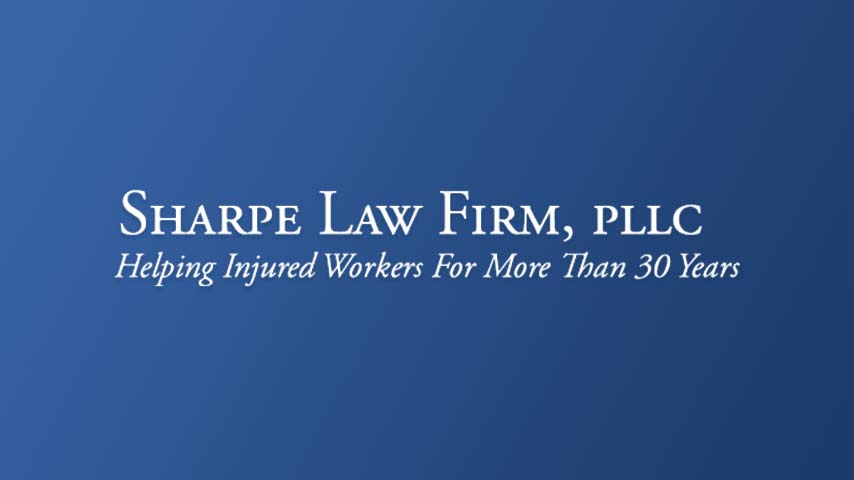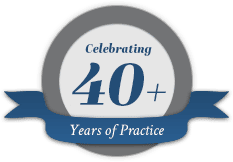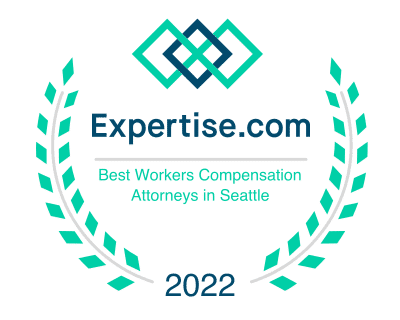How does L&I work?
L&I is the Washington State Department of Labor & Industries. It is a quasi insurance system covering workers hurt on the job. Benefits include medical care, time loss compensation, permanent partial disability, vocational rehabilitation, pensions, and other payments. Workers in Washington pay an insurance premium for this no fault L&I injury coverage. When you get hurt on the job insist on getting L&I benefits. You have paid for them, you deserve them.
A claim progresses like this:
- Suffer an injury L&I Claims are Either an Injury or an Occupational Disease
- See a doctor L&I Medical Treatment
- File a claim How to file a claim deal with L&I
- Get L&I benefits L&I benefit summary
- Complete medical care
- Get a disability rating IME
- Close your claim How to settle your L&I claim
However all this can be complicated and may not turn out well. For example L&I does not pay for pain and suffering, but if you have diagnosed as depression, you can get paid. Get help if you need it. See Things you need to know.
Who is covered by L&I?
Most workers are covered by L&I Insurance. You may have L&I insurance even if you think you don’t. Coverage is mandatory, and your employer is required to pay for it, either before or after you are injured.
- Most workers are covered by L&I in Washington State. You may have L&I insurance even if your employer says you do not, and even if your employer has not paid for this coverage.
Most employers don’t like L&I claims. Some will tell you that you do not have L&I coverage to discourage you from filing a claim. Don’t believe an employer who is not telling the truth. Some employers may not have paid L&I for your worker compensation coverage. That doesn’t matter. If you are a worker you are covered, even if your boss cheated L&I. - You’re covered even if you work “under the table.”
Common sense seems to say that if you work under the table, you have no L&I coverage. Common sense is wrong. If you’re a worker in Washington State, you are covered, even if you work “under the table.” - You’re covered, even if you are undocumented and not a citizen.
- All Washington State workers are covered, with some exceptions.
- Definition of worker: RCW 51.08.180
- Are you a worker or not? RCW 51.08.195
- If these rules are important to you, get legal help in understanding them.
- Believe this: Just because your employer says you are not covered does not make it so. These definitions are the rule. Ther rule is more important than any label or title your employer has given you regarding your status.
- The exceptions to mandatory L&I insurance coverage are listed in RCW 51.12.020.
What benefits does Labor & Industries provide to injured workers?
Labor and Industries can provide benefits such as:
- Medical coverage
- Time loss payments
- Permanent partial disability awards
- Vocational services
- Pensions
- Death payments
- Travel reimbursement
- Loss of earning power (LEP)
To find out more see L&I Benefit Information.
How do I file a Labor and Industries claim?
To file a claim, you must see a doctor and complete a Labor & Industries accident report form. For state fund cases, most doctors have this form in their office. For self-insured employers, your employer should have the form you need. Complete your part of the form, then give it to the doctor’s office to complete their part of the form, and send it to Labor & Industries. It is also smart to report your injury to your employer as soon as possible. For additional information see L&I Claims – Detailed Guide to Starting an L&I Claim.
Is there a deadline to file an L&I claim? What is the Statute of Limitations?
Yes, for sure there is a deadline to file a claim. It is called the Statute of Limitations (SOL). There are two such SOL’s, one for injury and another for an occupational disease. For an injury you have one year from your injury date to file an L&I claim. For an occupational disease you have two years or longer, from the manifestation of your occupational disease, to file an L&I claim. These are important deadlines. Get more information at L&I Claims are Either an Injury or an Occupational Disease
Can I choose any L&I doctor I want?
You may choose your own doctor, however there is a limited pool of doctors you can choose from. L&I keeps a list of these doctors. They are called network providers in Washington State. Finding a good doctor who is on the list is often a big problem. See: L&I Medical Treatment for more information.
Will L&I pay my medical bills?
L&I does pay for your medical if the treatment you receive is related to your job injury or occupational disease.
L&I will continue to pay for medical care so long as your medical treatment continues to be curative. For more information, see Medical Care.
Does workers’ compensation pay for my lost wages? What is time loss?
Workers’ Compensation coverage will pay time loss for 60 to 75 percent of what your wages were on the day of your injury. This amount is limited and cannot exceed the state maximum rate. You should receive a check every two weeks, as long as you are properly certified as unable to work by your attending physician. For more information, see: Frequently Asked Questions (FAQ) About L&I Time Loss and How do I get a fair time loss rate.
What is a permanent partial disability (PPD) settlement?
Permanent Partial Disability is an award of money (if any) at L&I claim closure. Persons who are awarded PPD money are employable and can or have returned to work. As an injured worker, you have a right to receive a money award if you have an objectively measurable impairment from your job injury which exists at the time of your claim closure. The amount of the award is dependent upon the extent of the impairment and the date of injury. Claim closure will usually occur shortly after the doctor has completed treatment and L&I says you can work. For more information, see How to Get a Fair Permanent Partial Disability (PPD) Settlement.
Why Does Workers Compensation Take So Long to Settle?
What is the Average Settlement Time? L&I delay tactics explained.
Claim closure and permanent partial disability awards take time
Before L&I will order payment of PPD settlement money
- The worker needs an open claim
- The worker needs to be medically fixed and stable,
- The worker must be employable,
- A rating exam must be completed.
- After all that is done L&I must issue a closing order and award any permanent partial disability. This should only take a couple of months once all reports are in the claim file. For more information see PPD Settlement
Time loss payments should be quick
- The time loss rule is found in RCW 51.32.210 : “…When temporary disability compensation is payable, the first payment thereof shall be mailed within fourteen days after receipt of the claim at the department’s offices in Olympia…”
- If payment is delayed the L&I file may be missing medical certification of inability to work
- For more information see Q&A Regarding Time Loss
Vocational training does not come easy
- You must be unable to work at any job
- A vocational assessment must be completed
- L&I must decide or be persuaded that vocational services are necessary to return to you to gainful employment
- Plan development must be completed
- The employer of injury can offer a permanent work position and stop vocational services from starting
- The retraining plan must be completed sufficiently that the worker becomes employable
- For more information see L&I Vocational Training – The Ultimate Guide
Stuff Happens
- L&I and Self Insured are overworked
- Claim file may be missing required documents
- Somebody may not be doing their job
What about an overpayment?
An overpayment is a determination by L&I that benefits have been inappropriately paid. The difference between what was paid and what should have been paid is the overpayment amount. When an overpayment is specified in an Order this is serious business. Protest or L&I will either be taking that money back, or they will deduct it from your future benefits.
Keep in mind that just because L&I says it is so – doesn’t make it true. The facts and the law decide what is right. If L&I’s decision is wrong then challenge it. How to Disagree with an L&I Decision.
Should I disagree with an L&I Decision?
L&I decisions are important. Pay attention to them and take appropriate action if you receive an incorrect order or letter. See How to Disagree withan L&I Decision and learn how to protest, appeal and protect your rights.
Can I have an attorney represent me for a workers’ compensation claim?
Yes in workers’ compensation, you have a right but not an obligation to have legal counsel. If you have any questions regarding workers’ compensation law, or your rights, you may want to consult an attorney. You may choose any attorney you wish, and you have a right to have the fees that your attorney charges reviewed to ensure that they are reasonable. For more information see L&I Lawyer and Attorney or Contact Us.
Do I want to hire an attorney to represent me for my workers compensation claim?
It depends on many things. Mostly it’s about your facts and L&I law. If your situation clearly entitles you to L&I benefits and if you know what to do, you can DIY. If you are unsure how to proceed if you want some help to figure it out ask for a free consultation and strategy session. Contact Us
Do temporary workers get L&I benefits?
Temporary workers do get L&I benefits after a job injury. Get details at Temporary Agency Employee Lawsuits and L&I Job Injuries.
What is a third party claim?
A third party claim exists if, while on the job, you are injured intentionally by anyone, or if you are injured negligently by someone who is not your employer or co-worker. When this occurs you have two claims. You can file an L&I claim and you can file a third party claim for the losses that the negligent party has caused you. For more information, see Third Party Claims in Washington State.
Can I get job retraining if my L&I injury does not allow me to return to my old job?
Limited vocational assistance is sometimes available to injured workers whose injury continues to totally restrict their ability to work. For more information, see L&I Vocational Training .
What is the difference between an injury and an occupational disease?
A job injury is basically defined as a sudden and traumatic outside event producing an immediate result to the worker. An occupational disease is a medical condition or disease that has developed slowly, over time, resulting from exposure or a continuous condition on the job. An example of a job injury is falling off a ladder and breaking an arm. An example of an occupational disease is loss of hearing due to working around noisy equipment. For more information and a more formal definition see L&I Claims are Either Injuries or Occupational Diseases
An L&I order is a written determination by L&I or the self-insured employer that affects your legal rights. Orders are issued for many purposes, to include opening or closing claims, setting wage rate, accepting or denying benefits, etc. The time period between the date the order is communicated to you and the time you must act is often 60 days. 60 days is the amount of time you have to protest or appeal in writing, that order. If you do not timely protest or appeal, then the order becomes final – and cannot be changed. See “Res Judicata”. See also : How To Disagree With An L&I Decision
What is an IME?
An IME is short for independent medical examination. An IME is requested by the state or self-insured employer for the stated purpose of obtaining an expert opinion regarding medical conditions. In reality, IME’s are performed by hack doctors and often used to cut off benefits and close claims. Labor & Industries or the self-insured employer has the power to schedule and insist on your attendance at a reasonable number of IME’s. If an IME is scheduled for you, you might want to consider consulting an attorney and preparing yourself for the IME. See: Eleven Things That Can Ruin Your Claim. See also: IME.
What is an L&I pension?
An L&I pension is the rough equivalent of your time loss for the rest of your life. A pension is also known as Permanent Total Disability. To qualify for a pension you must be unable to return to work. Pensions can be worth a lot of money. They are not easy to get. You can get permanent partial disability or a pension, not both. To learn more see L&I Pension
What is voluntary retirement?
At L&I, voluntary retirement amounts to L&I saying you do not get time loss or pension payments. Don’t let them do this. More info at Voluntary Retirement and L&I Benefits.
What is medical retirement?
- The definition of medical retirement changes depending upon who is using it.
- If your doctor says you can medically retire he likely thinks you can’t or shouldn’t be working and you may be eligible for a pension or social security disability.
- If your employer says you can medically retire, pay attention. Many self insured employers will transition their workers from leave of absence to medical retirement and an employer or union pension. Nothing wrong with that. However those same employers often will not explain that you can get both an employer pension and L&I benefits, to include an L&I pension. Be sure to follow up on your L&I Benefits.
- Voluntary retirement is an L&I concept, be careful with this. By declaring voluntary retirement L&I intends to not pay benefits. Click on the link for more info: Voluntary retirement
- Early retirement is a social security concept that reduces retirement benefits. If eligible consider social security disability instead of early retirement.
What is an L&I settlement?
- L&I settlements come in three varieties: Pension, Permanent Partial Disability (PPD), and CRSSA.
- For more details about all three see: L&I Settlement Amounts for Washington State Labor and Industries Claims
- Most settlements are for (PPD), money paid for permanent impairment at claim closure. See: L&I Permanent Partial Disability Settlement for important details.
Can I reopen my Labor & Industries claim after it is closed?
Yes, Labor & Industries claims (except CRSSA’s) can be reopened for full benefits any time within seven years of the date of first final closure. L&I claims can be reopened for medical benefits anytime. To reopen you must show an objective worsening of your accepted condition. See Reopening an L&I claim
Are L&I payments taxable? Do I have to pay taxes on L&I workers’ compensation Settlements, Pensions or Time Loss?
Mostly good news here. The IRS statute 26 USC 104(a)(1) and Federal Tax Regulation 1-104-1(b) state that money received under workers’ compensation acts, benefits for personal injuries or sickness incurred in the course of employment are excluded from gross income. This means they are not taxable.
There are two exceptions to the not taxable rule. Sidebar payments may not so qualify. Also, there is a tax injustice in the reverse offset years (age 62-65), for some persons getting both social security disability and either L&I time loss or L&I pension payments. The L&I benefits which offset the taxable Social Security benefits are treated as though they are a taxable Social Security benefit. Social Security will send a statement to the injured worker and to the IRS. Depending on the remainder of household income, income taxes may be due on these Social Security Benefits even though they are never received. 28 U.S.C. § 86(d)(3). US Tax Court Flores v. Commissioner. This is an unfair tax. Talk to your tax advisor if this taxation of the reverse offset applies to you.
What is a Social Security offset?
Offsets are bad news. They are easy to hate. Offsets are L&I and Social Security’s way of making sure you don’t get full benefits under both systems. Offsets are bogus. However they are the law, and one of these agencies will deduct this offset money from your benefits. L&I and Social Security often get the offset amount wrong. Check their math. Protest or Appeal wrong decisions. Get help if you need it. See Social Security Offset for more info.
Is there more than one type of L&I? What is Self Insurance?
There are two types of Washington State L&I insurance. The Department of Labor & Industries (L&I) is in charge of worker’s compensation in Washington State.
- State Fund Claims:
- State fund cases are handled by claims managers who work for L&I. These L&I claims managers are there to move your claim along. They may or may not be helpful.
- Self Insured Claims:
- Self insurers, often large employers, manage their own L&I claims. These claims are handled by employees or agents of the employer. Self insured claims managers are not there to help you. They will only help if they have no other choice. See also Self Insured Employers
What is a Penalty?
Penalties are assessed against self-insured employers for certain prescribed conduct. RCW 51.48.080, RCW 51.48.017, RCW 51.14.080 Some penalties are payable to the injured worker, others to L&I. There are penalties for
- Unreasonable delay or refusal to pay benefits as the are due: RCW 51.48.017; WAC 296-15-266. See also Penalties to the Self Insured Employer for Unreasonable Delay
- Failure to comply with a CRSSA: RCW 51.04.063
- Failure to conspicuously post required information: RCW 51.14.100(1)
- Failure to keep and or furnish compensation records: RCW 51.14.110
- Failure to timely provide the claims file: RCW51.14.120(1); WAC 296-15-420(7)
- Failure to timely notify L&I: RCW 51.14.120(2); WAC 296-15-480; WAC 296-15-420(1)
- Failure to submit a medical report of closure: RCW 51.14.120(3)
- Failure to timely act on a filed claim: RCW 51.14.130; WAC 296-15-350
- Failure to keep and allow inspection of payroll records: RCW 51.48.040
- Failure to follow L&I rules RCW 51.48.080
- For self-insured municipal employers and private sector firefighter employers, there is a penalty for a violation of good faith and fair dealing: RCW 51.48.017
Are there other workers compensation systems other than L&I?
Yes, here is a list with brief descriptons:
- Washington State Workers Compensation (L&I)
- The Department of Labor and Industries (L&I) handles state fund workers compensation insurance in Washington. They preside over self insured claims. Almost all Washington State workers compensation claims are L&I claims. The website you are now on is about the Washington State L&I system.
- Federal Workers Compensation
- Federal Employees Compensation Act for postal workers, federal park rangers, and other federal employees.
- The Energy of Employees Occupational Illness Compensation Program for employees of the Department of Energy and others.
- Longshore and Harbor Workers Compensation Act for Longshore workers, ship repair personal, ship builders and other edge of the water employees.
- Defense Base Act for Workers Compensation protection to civilian employees working outside the United States on US military bases or under contract with the US Government for Public Works or National Defense.
- Black Lung Benefits Act provides benefits to coal miners and their eligible survivors for black lung disease.
- The Non-Appropriated Fund Instrumentalities Act. Provides coverage for civilian employees in a PX Exchange or related environment.
- The other 49 states
- Each state has its own workers’ compensation system. Contact your state for further information.
How to get legal help with my L&I claim
Most L&I lawyers are happy to give you an initial free consultation. Here at the Sharpe Law Firm we offer that free consultation together with a free strategy session. With your permission we can view a copy of your L&I file and talk with you about the important things we see in your L&I file and how they might impact your L&I claim. Call us and we’ll answer your questions. Don’t think twice, it’s free. Give us a call or complete our do I have a case questionnaire.










